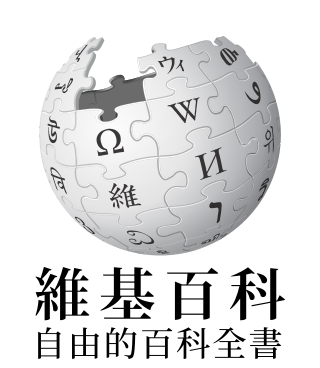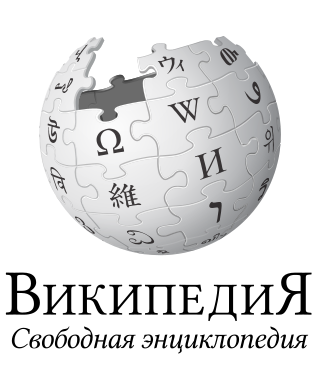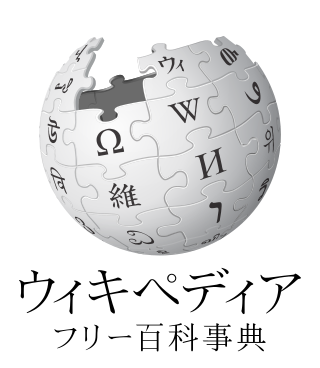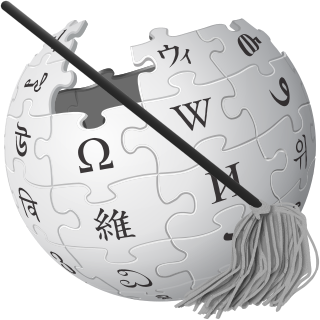
The Chinese Wikipedia is the written vernacular Chinese edition of Wikipedia. It is run by the Wikimedia Foundation. Started on 11 May 2001, the Chinese Wikipedia currently has 1,331,563 articles and 3,305,103 registered users, of whom 68 have administrative privileges.

The German Wikipedia is the German-language edition of Wikipedia, a free and publicly editable online encyclopedia.

A sock puppet is defined as a person whose actions are controlled by another. It is a reference to the manipulation of a simple hand puppet made from a sock, and is often used to refer to alternative online identities or user accounts used for purposes of deception. Online, it came to be used to refer to a false identity assumed by a member of an internet community who spoke to, or about, themselves while pretending to be another person.

The Russian Wikipedia is the Russian-language edition of Wikipedia. As of January 2023, it has 1,887,224 articles. It was started on 11 May 2001. In October 2015, it became the sixth-largest Wikipedia by the number of articles. It has the sixth-largest number of edits (128 million). In June 2020, it was the world's 6th most visited language Wikipedia after the English Wikipedia, the Japanese Wikipedia, the Spanish Wikipedia, the German Wikipedia and the French Wikipedia.
Some edits to the online encyclopedia Wikipedia by staff of the United States Congress have created controversy, notably in early to mid-2006. Several such instances, such as those involving Marty Meehan, Norm Coleman, Conrad Burns, and Joe Biden, received significant media attention. Others, such as those involving Gil Gutknecht, were reported but received less widespread coverage.

Most criticism of Wikipedia has been directed toward its content, community of established users, and processes. Critics have questioned its factual reliability, the readability and organization of the articles, the lack of methodical fact-checking, and its political bias. Concerns have also been raised about systemic bias along gender, racial, political, corporate, institutional, and national lines. In addition, conflicts of interest arising from corporate campaigns to influence content have also been highlighted. Further concerns include the vandalism and partisanship facilitated by anonymous editing, clique behavior, social stratification between a guardian class and newer users, excessive rule-making, edit warring, and uneven policy application.
Russian web brigades are state-sponsored anonymous Internet political commentators and trolls linked to the Government of Russia. Participants report that they are organized into teams and groups of commentators that participate in Russian and international political blogs and Internet forums using sockpuppets, social bots and large-scale orchestrated trolling and disinformation campaigns to promote pro-Putin and pro-Russian propaganda. Articles on the Russian Wikipedia concerning the MH17 crash and the Russo-Ukrainian War were targeted by Russian internet propaganda outlets. In June 2019 a group of 12 editors introducing coordinated pro-government and anti-opposition bias was blocked on the Russian-language Wikipedia. During the war by Russia against Ukraine in 2022, Kremlin trolls were still active on many social platforms and were spreading disinformation related to the war events.

On the Internet, a block or ban is a technical measure intended to restrict access to information or resources. Blocking and its inverse, unblocking, may be implemented by the owners of computers using software. Some countries, notably China and Singapore, block access to certain news information. In the United States, the Children's Internet Protection Act requires schools receiving federal funded discount rates for Internet access to install filter software that blocks obscene content, pornography, and, where applicable, content "harmful to minors".

The Japanese Wikipedia is the Japanese-language edition of Wikipedia, a free, open-source online encyclopedia. Started on 11 May 2001, the edition attained the 200,000 article mark in April 2006 and the 500,000 article mark in June 2008. As of January 2023, it has over 1,359,000 articles with 14,995 active contributors, ranking fourth behind the English, French and German editions.

On Wikimedia Foundation projects, an Arbitration Committee (ArbCom) is a binding dispute resolution panel of editors. Each of Wikimedia's projects are editorially autonomous and independent, and some of them have established their own ArbComs who work according rules developed by the project's editors and are usually annually elected by their communities. ArbComs generally address misconduct by administrators and editors with access to advanced tools, and a range of "real-world" issues related to harmful conduct that can arise in the context of a Wikimedia projects. Rulings, policies and procedures differ between projects depending on local and cultural contexts. According to the Wikimedia Terms of Use, users are not obliged to have a dispute solved by an ArbCom.

On Wikipedia, vandalism is editing the project in an intentionally disruptive or malicious manner. Vandalism includes any addition, removal, or modification that is intentionally humorous, nonsensical, a hoax, offensive, libelous or degrading in any way.
Widespread censorship of Wikipedia has occurred in countries including China, Iran, Myanmar, Pakistan, Russia, Saudi Arabia, Syria, Tunisia, Turkey, Uzbekistan, and Venezuela. Some instances are examples of widespread internet censorship in general that includes Wikipedia content. Others are indicative of measures to prevent the viewing of specific content deemed offensive. The length of different blocks have varied from hours to years. When Wikipedia ran on the HTTP protocol, governments were able to block specific articles. However, in 2011 Wikipedia began running on HTTPS as well and in 2015 switched over entirely. Since then, the only censorship options have been to block the entire site for a particular language or prosecute editors, which has resulted in some countries dropping their bans and others expanding their bans to the entire site. Wikipedia has been blocked in China since 23 April 2019 and in Myanmar since 21 February 2021.
Conflict-of-interest (COI) editing on Wikipedia occurs when editors use Wikipedia to advance the interests of their external roles or relationships. The type of COI editing of most concern on Wikipedia is paid editing for public relations (PR) purposes. Several Wikipedia policies and guidelines exist to combat conflict of interest editing, including Wikipedia:Conflict of interest and Wikipedia:Paid-contribution disclosure.

Wikipediocracy is a website for discussion and criticism of Wikipedia. Its members have brought information about Wikipedia's controversies to the attention of the media. The site was founded in March 2012 by users of Wikipedia Review, another site critical of Wikipedia.

Wiki-PR is a consulting firm that formerly marketed the ability to edit Wikipedia by "...directly edit[ing] your page using our network of established Wikipedia editors and admin[s]".
Status Labs is a digital reputation management company based in Austin, Texas. It was founded in 2012 by Darius Fisher, Jordan French, and Jesse Boskoff. The firm has been hired by various clients to hide unfavorable news from Internet search results.
Ashley Feinberg is an American journalist, covering politics, media, and technology. She is known for her internet sleuthing, through which she has uncovered information about the online activity of public figures.

Volunteer editors of Wikipedia delete articles on the online encyclopedia on a regular basis, following processes that have been formulated by the site's community over time. The most common route is outright deletion of articles that are clearly in violation of rules of the website. Other mechanisms include an intermediate collaborative process that bypasses a full discussion, and full discussion at the dedicated forum called Articles for deletion (AfD). As a technical action, deletion can only be carried out by a subset of editors who have been assigned particular technical privileges by the community, called administrators. A deletion that has been carried out can be contested by appeal to the deleting administrator, or on another discussion board called Deletion review (DRV).
From 2012 to 2022, Zhemao, an editor of the Chinese Wikipedia, created over 200 interconnected articles about falsified aspects of medieval Russian history in one of Wikipedia's largest hoaxes. Combining research and fantasy, the articles were fictive embellishments on real entities, as Zhemao used machine translation to understand Russian-language sources and invented elaborate detail to fill gaps in the translation. She started this practice as early as 2010 on Chinese history topics, but turned to Russian history in 2012, and the political interactions of medieval Slavic states in particular. Many of her hoax articles were created to fill detail in her initial fabrications. Zhemao eluded detection for over a decade by obtaining the community's trust: faking a persona as a Russian history scholar, using sockpuppet accounts to feign support, and exploiting the community's good faith that her obscure sources matched the article content.











